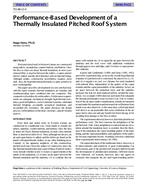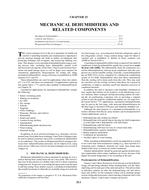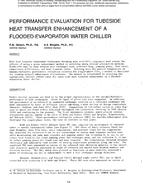States that when retrofitting or implementing energy conservation measures in buildings, the most cost-effective measures must be identified. This requires the collection of relevant technical and economic data. Field inspections provide data for setting priorities among different possible measures. States that thermographic methods have a good accuracy in indicating damages and energy-related conditions of building envelopes. Inspection using fibre optics of the building envelope interior confirms the indication of damage such as wet, faulty or missing insulation,thermal bridges and air leak paths. The influence of the air leaks may be quantified by measuring the air change rate. Energy losses for various building components can be computed using building design data and field inspection data as input. A check for consistency is provided by the metered total energy consumption of the building. Presents results from a detailed study of one building that was to be retrofitted. The information was presented in the form of a priority list to the building manager and contractor. After the retrofit was evaluated, the benefit of the selected measure was compared to the optimal choice according to the priority list.
KEYWORDS: Modernising, buildings, components, costs, comparing, energy conservation, thermophotography, inspecting, case studies
Citation: ASHRAE Trans. 1992, vol.98, part 1, paper number AN-92-7-2, 865-873, 9 figs, 3 tabs, refs.
Product Details
- Published:
- 1992
- File Size:
- 1 file , 2.4 MB
- Product Code(s):
- D-17986


